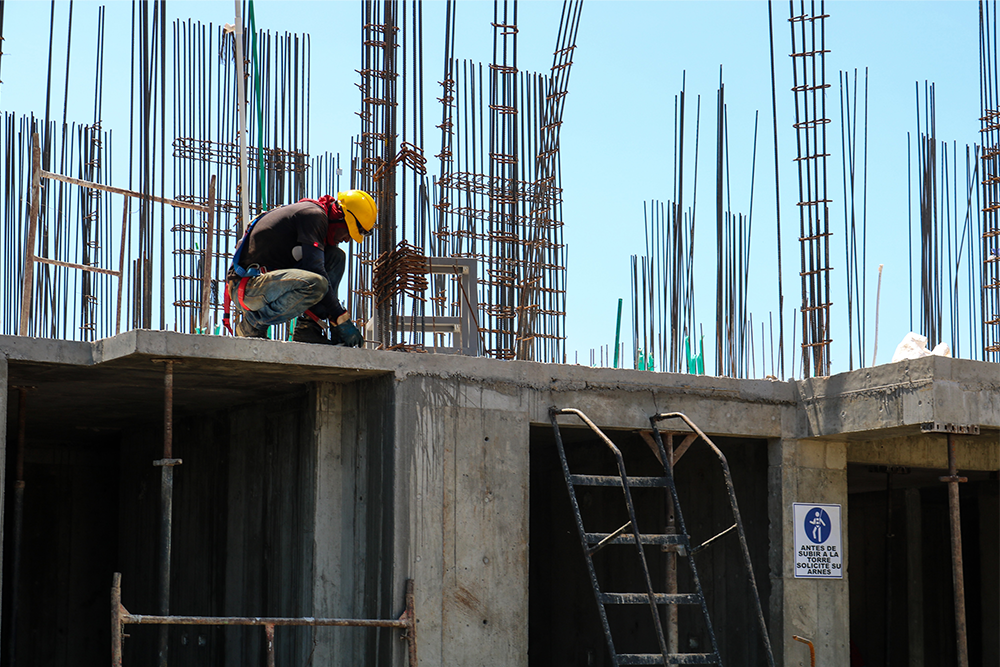58 results found
Featured results

More results
The Public-Private Infrastructure Advisory Facility (PPIAF) in collaboration with the Multilateral Cooperation Center for Development Finance (MCDF), Egyptian Ministry of Finance, African Development Bank (AfDB), Asian Development Bank (ADB), World Bank and the World Association of PPP Units and Professionals (WAPPP) will be hosting a series of webinars to provide valuable insights into PPPs.
The PPIAF team recently participated in the annual #Infra4Dev Conference in Rabat, Morocco. Henri Blas, Ludovic Delplanque, and Luciana Guimaraes Drummond e Silva each engaged in panel sessions during this two-day event, sharing knowledge insights and resources on various topics, including the global infrastructure financing landscape, PPP project preparation, and integrating gender into PPPs.
Last week, the Public-Private Infrastructure Advisory Facility (PPIAF) hosted a webinar on “Building Strong PPP Institution in Developing Countries”. This webinar followed a global review undertaken by PPIAF to better understand the drivers of success in public-private partnership (PPP) programs. This webinar focuses on the role of contract management in PPPs.
The European PPP Expertise Centre's mission is to support the public sector across Europe in delivering better public-private partnerships (PPPs). It shares good practice, assists policy development, and supports PPP project preparation.

This book questions the premise that Public-Private Partnerships (PPPs) have a performance advantage over traditionally procured projects. It examines novel research comparing the differences in performance between PPP and traditionally procured infrastructure projects and thoughtfully scrutinises the supposed advantages of PPPs.

Inflation continues to soar globally, the IMF forecasts inflation will rise from 4.7 percent in 2021 to 8.8 percent in 2022. In India, wholesale inflation has remained in double digits for more than a year. The IMF now expects global growth to slow from 6.0 percent in 2021 to 3.2 percent in 2022 and 2.7 percent in 2023.
This Checklist for PPPs has been prepared from the point of view of public policy makers and decision-makers in countries at various levels of development and capacities for the purpose of a high level assessment of a PPP project.


Over 70 participants from 13 countries met in Dakar, Senegal from 26-28 November 2019 to participate in a three-day infrastructure and PPP workshop, led by the Global Infrastructure Hub.
PPP webinars presents trending topics on PPPs and infrastructure, as well as the latest tools for practitioners, case studies, and presentations from experts.

This report assesses infrastructure PPP investments in an expanded list of Fragile and Conflict Affected States (EFCS2), as well as the PPP regulatory frameworks during the 2012-2016 period.
The Project Disclosure Portal was launched in 2018 by the Government of Kenya with support from the World Bank, as a push to improve transparency of information on PPP projects.


With regards to the emphasis on the proper risk allocation, the Risk Allocation Guideline, which has been released annually, becomes very essential as a key reference in assessing and allocating risks for the purpose of guarantee provision, as mandated by the regulation.

The PPP Screening Tools is for preliminary screening of projects to determine their potential suitability for PPP procurement.

This certification program aims to enhance PPP performance globally. Individuals awarded the Certified PPP Professional (CP3P) credential demonstrate to peers that their abilities align with global PPP good practices.

PPP online courses provide an understanding of the key principles of PPPs and the role of PPPs in the delivery of infrastructure services, particularly in emerging markets.

This PPIAF-funded report aims to discuss and disseminate information on how Islamic finance has been applied in infrastructure projects through PPP schemes, what the structural challenges and solutions are, and what can be done to deepen and maximise the use of Islamic finance for this purpose.
The PPP Contract Management Tool provides public sector officials with practical guidance and case studies, so that those responsible for managing contracts after financial close are better able to ensure project objectives and value for money.

The term of a public-private partnership (PPP) contract can exceed 20 or even 30 years. At the end of the term, the relevant private partner is often obligated to hand back the public asset in question (whether it be a road, an airport or a hospital) in a condition that meets the government procuring authority’s expectations.






 Improving Delivery Models
Improving Delivery Models




